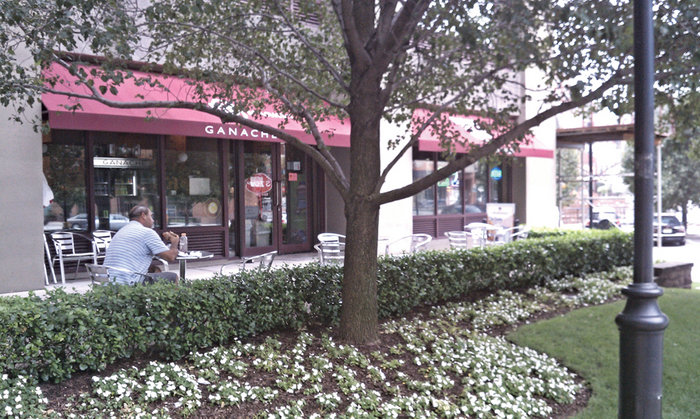Two members of the City Council have come to a disagreement over the specifics of an ordinance that would allow local eateries to offer outdoor dining all year round. Tim Occhipinti and Jen Giattino proposed ordinances during the July 11 council meeting that would lift seasonal restrictions on sidewalk dining. But both ordinances were tabled after a disagreement involving the fees business owners would have to pay.
Both Giattino and Occhipinti have expressed the need to remove seasonal restrictions in the current ordinance, which allows sidewalk dining only from April 1 through Nov. 30 from 8 a.m. to 11 p.m. for food service, and from 11 a.m. to 11 p.m. for alcoholic beverage service.
Only restaurants and cafés can offer restaurant dining, and that would remain the same under both council members’ proposed changes.
“It was nice weather [last] March,” said Occhipinti, “and if the restaurateurs or the proprietors want to serve a customer outside, and the customer wanted to sit outside, they should be able to do so.”
“At the end of the day, I just want our business owners to be able to serve a nice meal to our residents on a beautiful day, no matter what day of the year it is.” – Tim Occhipinti
____________
Both council members, who are on opposing factions on the governing body, have begun reaching out to business owners and members of the public to gather their feedback on the proposed changes.
Pricing woes
Currently, restaurants and cafés with 19 or fewer seats are charged an annual fee of $300. Those with 20 or more seats are charged $400.
Giattino said the current pricing structure is outdated.
“I think it’s ridiculous that we haven’t changed the pricing since 1987,” said Giattino. “Why should someone who is taking up 200 square feet of public property be paying the same as someone that is taking up 600 feet of public property?”
Giattino also said that certain kinds of outside seating, such as picnic tables, are open to interpretation.
“How are you describing how many people can sit on a picnic bench?” asked Giattino.
Giattino’s measure proposes a change that would charge restaurant and café owners $2 per outdoor square foot annually.
Some owners, under Giattino’s proposed changes, could see an annual increase of more than $1,000, according to data compiled by Occhipinti from the Zoning Office.
Occhipinti said he is reluctant to charge business owners more.
“The numbers showed a significant increase to many of our establishments in their fee structure,” said Occhipinti. “In these challenging economic times, I certainly do not want to hurt our businesses.”
Occhipinti proposes to lower the fees for smaller establishments. Instead of charging a $300 or $400 annual fee based on the number of outside seats, Occhipinti proposes that small cafés with roughly four to five seats would only pay $150 annually.
Giattino said that allowing more outside dining would increase business, and that the proposed increases aren’t too cumbersome.
“It’s not an astronomical number that’s going to break their business,” said Giattino, adding that owners should pay for the amount of public space they encompass.
Giattino also addressed Occhipinti’s belief that the ordinance should not increase fees to the business owner.
“We’re not looking out for one person or the other,” said Giattino, “we’re actually looking out for the public.”
Despite the divergence of opinion on fees, both agree that the seasonal restriction should be lifted so that business owners can offer dining during unseasonably warm weather.
“At the end of the day, I just want our business owners to be able to serve a nice meal to our residents on a beautiful day, no matter what day of the year it is,” said Occhipinti.
Enforcement would be stiffened
Giattino said the main focus of her proposed ordinance is to update the language in the ordinance to ensure the city has grounds for enforcing its rules. According to Giattino, the zoning office gives restaurants a list of rules, but there are no penalties for violating any of its regulations.
“Legally, no one has to follow [any rules] because there is no law,” said Giattino.
Such rules include size limits, smoking restrictions, and preventing sidewalk cafés from obstructing retail stores or apartment entrances.
“I don’t believe that anyone out there is drastically pushing the envelope on the rule,” said Giattino, “but when there is something wrong it is much harder to fix it [than] if there were actual rules.”
“I believe most people don’t want any trouble and don’t break the rules, but there’s always someone,” continued Giattino, “and when [that happens], there is no ramification.”
Stephen LaMarca may be reached at slamarca@hudsonreporter.com.
